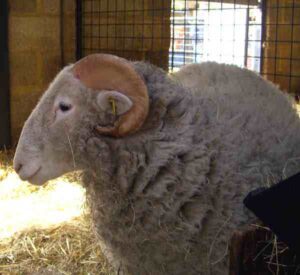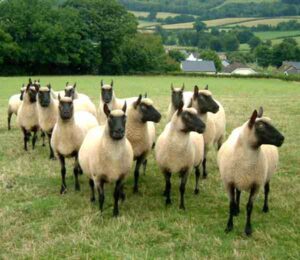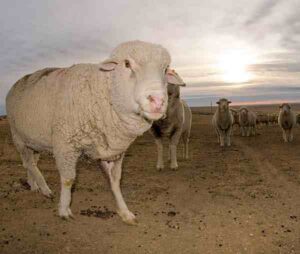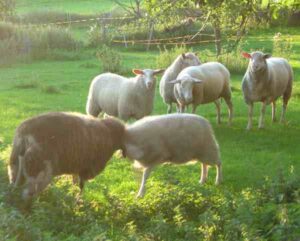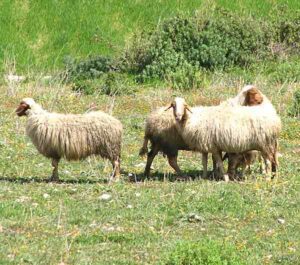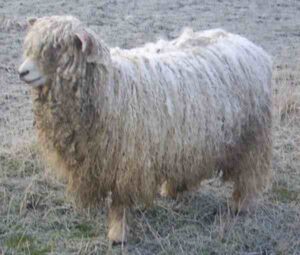The Corsican sheep is an ancient breed of domestic sheep which was originated from the island of Corsica in the Mediterranean region. It is also known as Mouton Corse. It’s origin traces back to the early sheep domestication in the region. They have adapted over centuries to thrive in the islands challenging terrain and climate.
Corsican is a very strong and hardy breed and are well known for it’s distinctive wooly coats and adaptability. They are valued for their meat and milk. And this sheep breed represent ancient heritage and at the same time modern agricultural practices.
Origin and history of Corsican sheep
The Corsican sheep were among the first animals to be domesticated in the Near East. And later they spread to various parts of Europe, including Corsica. Archaeological findings suggest that these sheep were present on Corsica during the Neolithic period (around 4000-2500 BCE).
The Corsican sheep were integral to the island’s agricultural system throughout the medieval period. The breed adapted to the island’s rugged terrain and varied climate. During this period, these sheep were primarily valued for their meat and wool. And traditional shepherding practices became a staple of rural life. They evolved to thrive in the island’s unique environment over time. The Corsican sheep is a rare breed today. And there has been an effort to preserve this traditional breed and improve it’s productivity.

Characteristics
Like many other domestic sheep breeds, the Corsican sheep are also easily distinguished by their several unique characteristics. They are medium-sized animals and have a sturdy and muscular body. Their legs are strong and well-adapted to navigate uneven ground of the island’s rugged terrain. Both rams and ewes have horns. The rams typically have striking curved horns. While the ewes have smaller or less noticeable horns (some ewes become hornless).
The Corsican sheep generally have a coarse and wooly coat. Their coat color can vary. But generally their coat color is shades of white, brown or black, and sometimes a combination of these colors. The rams are generally larger and more robust than the ewes. Average body weight of the rams is between 70 and 90 kg, and average body weight of the ewes is between 50 and 70 kg.
Dietary requirements
Like most other sheep breeds, the Corsican sheep’s dietary requirements are very simple. They are excellent grazers and are able to thrive on a diet consisting of coarse and fibrous vegetation (which are found in Corsica’s mountainous and rocky terrain). They have the ability to utilize low-quality forage efficiently, and turn them into high quality meat. That’s why they are able to survive on less nutrient-dense food as compared to other breeds.
You can provide a balanced supplement of minerals and vitamins to maintain good health and overall productivity. Do this especially during the periods of poor forage availability or in more intensive farming system. And always try to provide your animals with enough clean and fresh drinking water as per their demand.
Housing requirements
Housing requirements of the Corsican sheep is very simple. They thrive well in basic shelter that provides them protection form extreme weather conditions and predators. Ensure well ventilation and drainage system inside the house. Provide adequate bedding to ensure their comfort and also to prevent health issues. Always try to clean their house on a regular basis.
Reproduction
The Corsican sheep are naturally very good breeders. They will breed easily and produce offspring if you keep good ratio of rams and ewes in your flock. Generally, one mature ram is enough for breeding around or up to 25 ewes. The ewes generally have a breeding season that spans from late summer to early winter. After successful mating the ewes become pregnant and their average gestation period is of about 147 days. The ewes generally give birth to 1-2 lambs per season (twins are most common).
Behavior
The Corsican sheep are well known for their hardy and independent nature. They are well-adapted to extensive grazing system, and well-suited to their native island environment. They have efficient grazing behavior, and they can thrive on less nutritious forage. They are relatively calm, but are alert and responsive to their surroundings.
Lifespan
Average lifespan of the Corsican sheep is between 10 and 12 years. Some sheep can even live longer if proper care is taken.
Popularity and price
The Corsican sheep is popular among the people in Corsica and similar rugged environments. Their price is relatively less and affordable as compared to some common sheep breeds.
Uses
The Corsican sheep are valued for their meat and milk. And they are primarily valued and used for their meat and milk. Their meat is of good quality and known for it’s tenderness and rich flavor. And their milk is used for producing traditional cheese and dairy products.
The Corsican sheep is a popular breed in it’s native area. It is well known for it’s good quality meat production, and also good for producing milk. They are very strong and hardy animals and are well adapted to their native environments. Consider sharing this post with your friends and family members if you find it helpful. Good luck and may God bless you!
